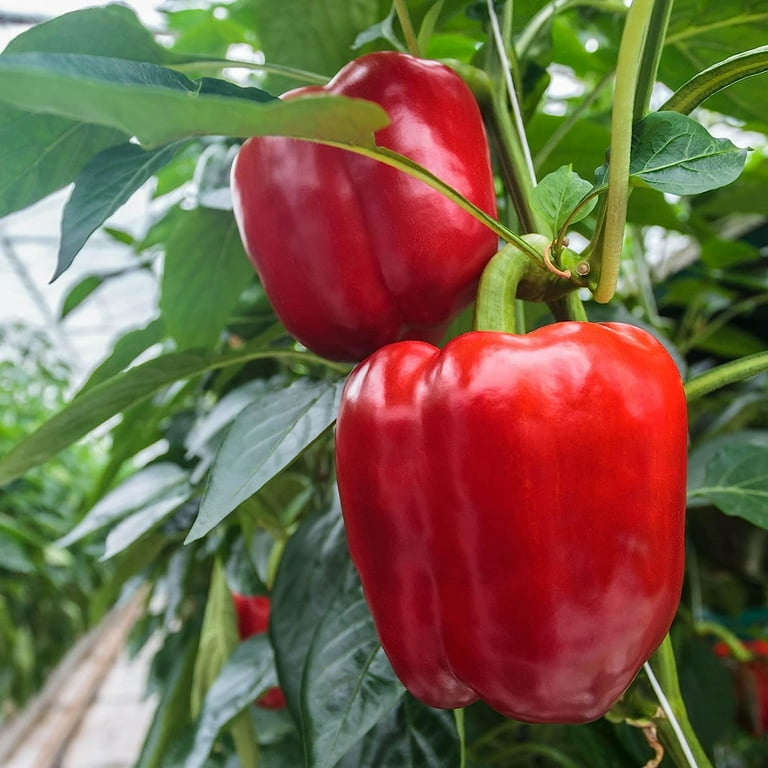Explore the Best Fertilizers for Peppers and Enhance Your Garden's Return
Explore the Best Fertilizers for Peppers and Enhance Your Garden's Return
Blog Article
Organic Vs. Synthetic Fertilizers: Which Is Best for Nurturing Healthy Pepper Plants?
In the realm of supporting healthy and balanced pepper plants, the selection in between organic and synthetic plant foods stands as an essential choice with significant effects. While both alternatives purpose to give essential nutrients to sustain plant development, the subtleties of their influence on the soil, plant health and wellness, and the atmosphere stimulate an argument that mirrors throughout the horticulture area. Understanding the distinctive advantages and potential challenges of each fertilizer type is crucial for pepper cultivators seeking to maximize their yields while maintaining a lasting and eco-conscious strategy.
Benefits of Organic Plant Foods
Organic fertilizers supply an environmentally-friendly and sustainable technique to beneficial pepper plants, offering essential nutrients without making use of synthetic chemicals. These natural plant foods are originated from organic resources such as compost, manure, bone meal, and algae, promoting dirt health and biodiversity. Unlike synthetic plant foods, organic choices launch nutrients slowly, making certain a balanced and consistent supply for pepper plants to flourish.
One considerable advantage of organic plant foods is their ability to enhance dirt structure and water retention. By boosting soil wellness, organic fertilizers promote helpful microbial activity, which assists in nutrient uptake by pepper plants. Additionally, natural fertilizers minimize the danger of chemical run-off, protecting water resources from pollution and protecting the setting.
Furthermore, natural plant foods contribute to lasting dirt fertility by advertising the growth of helpful soil microorganisms. These microorganisms aid break down raw material, launching nutrients in a kind that is easily available to pepper plants. best fertilizers for peppers. By cultivating a healthy soil ecological community, natural fertilizers support lasting pepper cultivation techniques that profit both plants and the environment
Disadvantages of Artificial Fertilizers
Synthetic fertilizers, unlike their organic equivalents, posture various negative aspects when used to nurture pepper plants, impacting both plant health and wellness and environmental sustainability. One major disadvantage of synthetic fertilizers is their propensity to seep nutrients from the soil promptly. This rapid leaching can result in nutrition discrepancies in the dirt, creating plants to deal with poisonings or shortages. Additionally, artificial plant foods can damage advantageous soil microorganisms, such as earthworms and valuable bacteria, disrupting the soil environment's balance.
Additionally, the overuse of artificial fertilizers can add to water pollution. Excess fertilizers not soaked up by plants can get rid of right into water bodies, bring about eutrophication, where algae flowers deplete oxygen levels in the water, damaging marine life. In addition, artificial plant foods are typically stemmed from non-renewable resources, such as nonrenewable fuel sources, adding to carbon discharges and ecological degradation throughout their manufacturing.
Nutrient Absorption Comparison
When comparing artificial and organic fertilizers in terms of nutrient absorption, natural fertilizers have the advantage of giving a much more balanced and slow-release source of nutrients. Organic plant foods contain a selection of macro and micronutrients that are not just advantageous for the plants however additionally promote healthy soil microbial task, which assists in nutrient uptake.
Moreover, natural fertilizers improve dirt structure and water retention capability, permitting pepper plants to accessibility nutrients more efficiently. This enhanced dirt quality helps with origin growth, enabling much better nutrient absorption. Synthetic fertilizers, although at first enhancing plant growth because of their high nutrient focus, may hinder long-term nutrient absorption by degrading soil health and wellness with time.
Ecological Impact Considerations

On the other hand, artificial fertilizers, although frequently more focused and right away offered to plants, can have harmful effects on the atmosphere if not used effectively (best fertilizers for peppers). Their production calls for high energy inputs, bring about greenhouse gas discharges and contributing to environment modification. Moreover, the overflow of excess synthetic plant foods can pollute water resources, causing eutrophication and harming marine communities.
Best Fertilizer Practices for Peppers
When feeding pepper plants, maximizing nutrient uptake and minimizing environmental effect are key considerations. To accomplish this, it is vital to follow finest plant food techniques customized to the specific requirements of pepper plants. One critical practice is to carry out a dirt examination before applying any kind of fertilizers. This examination can determine the pH level of the soil and recognize any nutrient deficiencies, leading you in selecting the most appropriate plant food solution.
One more crucial method is to feed pepper plants at the correct time. Generally, peppers take advantage of getting fertilizer at planting and then again when they begin to blossom. Over-fertilizing can bring about vitamins and mineral inequalities and harm the plants, so it is vital to comply with suggested application rates.
In addition, selecting a balanced plant food with an NPK ratio that matches pepper plants' demands is essential. Ultimately, incorporating artificial and organic plant foods carefully can aid nurture healthy and balanced pepper plants while decreasing environmental impact.
Verdict

Organic fertilizers use a sustainable you can try here and environmentally-friendly approach to beneficial pepper plants, providing vital nutrients without the use of artificial chemicals. Unlike synthetic fertilizers, natural options launch nutrients gradually, ensuring a well balanced and consistent supply for pepper plants to flourish.
Artificial plant foods, in contrast to their organic equivalents, pose different negative aspects when made use of to nourish pepper plants, impacting both plant Get the facts health and wellness and ecological sustainability. When contrasting natural and synthetic fertilizers in terms of nutrient absorption, organic plant foods have the benefit of giving a more balanced and slow-release source of nutrients.Additionally, organic plant foods boost dirt structure and water retention capacity, enabling pepper plants to accessibility nutrients extra effectively.
Report this page